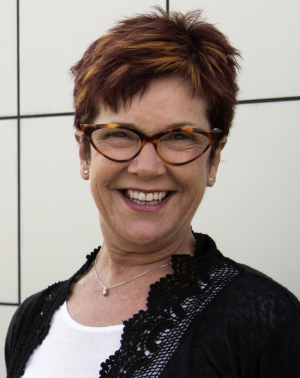Building 'Asia literacy' in the Asian Century
Research news
Given the scale and diversity of countries within the Asian region, gaining a useful understanding of Asia can seem insurmountable. It is both possible and essential, argues Deakin’s Chair of Education, Professor Christine Halse.
Professor Halse has edited a new book, “Asia Literate Schooling in the Asian Century,” that includes chapters from scholars who are at the forefront of current thinking, policy and practice on Asia-related schooling.
“Globalisation and the development of Asia’s tiger economies have led educators and policy makers to identify the best means for developing globally competent, ‘Asia literate’ citizens who can live, work and interact with the peoples, cultures and societies of Asia,” said Professor Halse.
In her chapter “What Makes Asia Literacy a ‘Wicked Policy Problem’?” Professor Halse examines the confluence of politics, ideology and foreign policy with teaching languages and studies of Asia over the past 30 years. These need to be disentangled, she argues, because building “Asia literacy” is crucial for Australia.
“It has to be done. It is fundamental to social inclusion within Australia and to future economic and political relations beyond Australia.
"In terms of our lack of interaction and lack of language acquisition, Australia stands out from the rest of the world. We are part of a global community. We might be an island, but we can’t live as one.”
“Many countries are seeking to transform their schooling policies, curricula, and teaching workforce to engage with the growing influence of the cultures and societies of Asia within and beyond their national boundaries,” Professor Halse added.
“Asia is the global centre of population growth, geo-political and military influence, as well as economic development.
"Based on current trends, in 20 years, Asia’s economy will be larger than that of the United States and the European Union, and have almost 53 per cent of global growth in GDP. Australian education is highly dependent on international students from Asia, and a significant proportion of Australia’s population have personal and professional ties across the countries of Asia.”
Professor Halse explained that educators “need to think outside the ‘transmission’ model of education, and facilitate living engagement with communities on our doorstep.”
She noted that the book marks one of the first times that Asia literacy education has been subjected to critical scrutiny, in terms of the concepts, policies and practices of schooling involved in building intercultural relations with the diverse contemporary manifestations of ‘Asia.’
"The book will appeal to scholars and practitioners in Education, and will be a suitable reference for teacher education courses,” she said. “It will also interest scholars specialising in Asian Studies.”
Asia Literate Schooling in the Asian Century
Contents:
Foreword Koichi Iwabuchi.
What Makes Asia Literacy a ‘Wicked Policy Problem’? Christine Halse.
The Time has Come: Histories of Asia Literacy David Walker.
The Concept of Tianxia and its Impact on Chinese Discourses on the West Rui Yang.
Learning Asia: In search of a New Narrative Fazal Rizvi.
Assessing Asia Literacy in Australian Teachers Dianne Toe.
Asia Literacy as Experiential Learning Julie Dyer.
Professional Standards and Ethics in Teaching Asia Literacy Alex Kostogriz.
China’s English: Lessons for Asia Literacy Bob Adamson.
The Feasibility of Implementing Cross-Curricular Studies of Asia Anne Cloonan.
Asia and the Autobiographical Picture Book Elizabeth Bullen and Trish Lunt.
Deparochialising Education and the Asian Priority: A Curriculum (Re)imagination Aaron Koh.
Asia Engagement Beyond Binaries and Boundaries: Towards a Re-theorisation of Asia,
Community, Curriculum Michiko Weinmann.
Australia’s Self-Identity and Three Modes of Imagining Asia: A Critical Perspective on ‘Asia’
Literacy Chengxin Pan.
Share this story
 Deakin's Chair of Education, Professor Christine Halse.
Deakin's Chair of Education, Professor Christine Halse.
